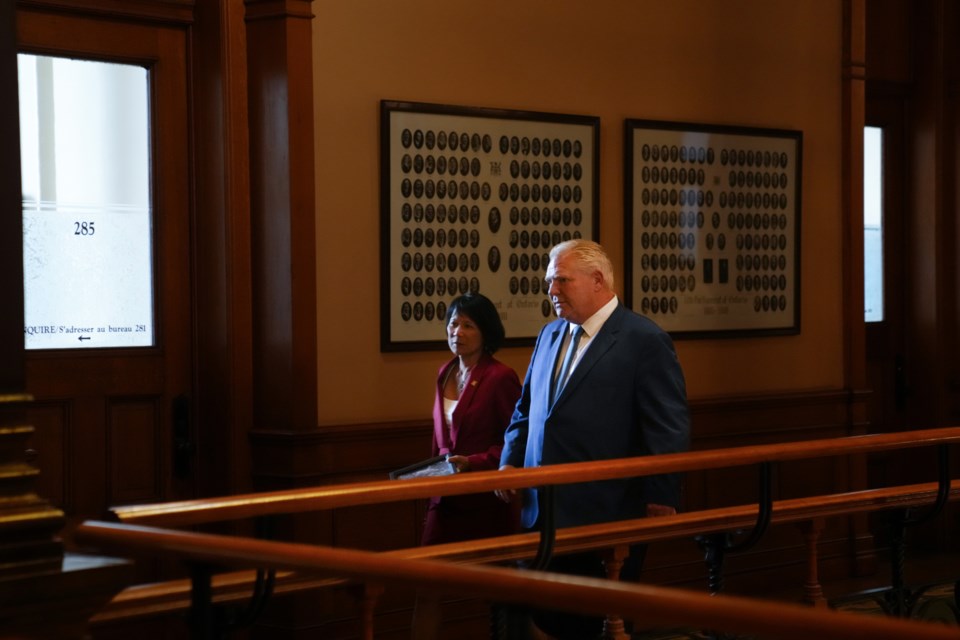Premier Doug Ford and Toronto Mayor Olivia Chow struck a "new deal" working group to find solutions to Toronto’s massive budget deficit without new taxes or cuts.
Civil servants from the province and city will get started right away and aim to deliver an agreement by the end of November.
Ford and Chow urged the federal government to join the effort and expect “there will be additional financial support” from Ottawa, according to the press release.
Federal Finance Minister Chrystia Freeland didn't immediately respond to a request for comment.
If Ottawa doesn’t join, “at a bare minimum, we will come up with some kind of understanding" between the city and province, Chow said.
Ford called federal intervention “critical.”
“If all three levels of government work together, work collaboratively together, then we get things done a lot quicker. So I'm encouraging the federal government to come to the table and have a voice at the table. That's most important,” he added.
Toronto is facing a $46.5 billion shortfall over the next 10 years with a $1.5 billion operating deficit in 2024.
The promise to find solutions to the city's budget issues without new taxes flies in the face of recent moves from Toronto's city council and staff.
City council recently voted in favour of levying new taxes to help fill the gap, including a higher municipal land transfer tax and higher parking rates.
Council also asked the province for authority to implement its own sales tax or get a slice of the existing HST, which Ford promptly shot down.
In August, city staff warned that even if the new measures are given the go-ahead, “immediate and sustained support from the Government of Canada and the Province of Ontario is needed to prevent significant tax increases, service level reductions and/or cancellation of capital projects that align with shared goals, including housing, transit and climate action.”
Ford suggested new revenues should come from economic growth.
The press release acknowledged Toronto’s financial woes are “structural” in nature, which experts have said stems from having few tools available to raise revenues and steadily taking on more costs other levels of government used to cover.
“On an ongoing basis, the city delivers key services that are extensions of federal and provincial responsibilities, such as child care, long-term care, employment and social services, public health and refugee response,” according to the August staff report.
“Approximately $1.1 billion, or 22 per cent, of the city’s annual property tax revenues reduce the financial burden for other orders of government and benefits the greater region,” it added.
A significant portion of municipal revenue comes from property taxes and raising them can be a political non-starter. Toronto’s last budget raised property taxes by 5.5 per cent, the largest since 1998.
Municipalities across Ontario have been singing the same tune for a while.
Ahead of August’s Association of Municipalities of Ontario conference, the organization formally asked for a new approach to funding cities.
Ford wouldn’t say if he’d replicate the Toronto working group with other municipalities.




